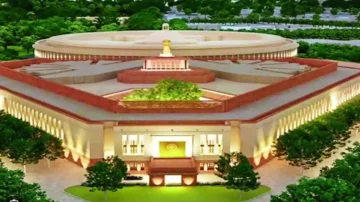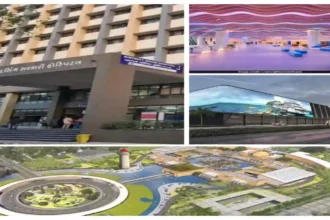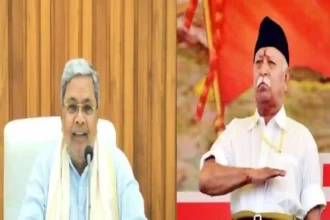
Murder of Merit in Madhya Pradesh: MPPSC Reservation Row Sparks Outrage Among Aspirants
Introduction: A Constitutional Crisis in the Heart of India
In a glaring defiance of the Supreme Court’s constitutional mandate, the Madhya Pradesh government finds itself at the center of a major controversy involving the Madhya Pradesh Public Service Commission (MPPSC) exams. At stake is the future of thousands of unreserved (UR) candidates many from economically weaker and modest backgrounds whose results have been withheld since 2019.
This crisis, widely condemned as the “Murder of Merit,” has reignited the national debate on caste based reservations, the 50% ceiling set by the Supreme Court in the Indra Sawhney judgment (1992), and the politicisation of public employment.
What Triggered the Controversy?
In 2019, the Madhya Pradesh government, led by the Congress at the time, issued a notification increasing the reservation for Other Backward Classes (OBCs) from 14% to 27%. With 16% reservation for Scheduled Castes (SCs) and 20% for Scheduled Tribes (STs), the total reservation shot up to a staggering 73% a clear violation of the Supreme Court’s 50% cap on reservations.
The decision was widely seen as a politically motivated attempt to secure the OBC vote bank, ahead of the 2020 and 2023 state elections.
Legal Timeline and High Court’s Intervention
Soon after the 27% OBC quota announcement, multiple petitions were filed in the Madhya Pradesh High Court, challenging the move as unconstitutional. The Court responded swiftly by staying the implementation of the increased quota effectively putting a hold on any results processed under this regime.
However, despite the court’s stay order, the state government went ahead and announced results for 87% of the candidates including 60% from the reserved categories and 27% from the open merit pool (which includes OBC candidates who qualify without availing reservation).
Yet, results for 13% of truly unreserved candidates remain withheld to this day, more than five years since the 2019 exam cycle.
Why Is This Alarming?
Violation of Supreme Court’s Mandate: The Supreme Court in the Indra Sawhney v. Union of India (1992) case clearly stated that reservations in public employment and education cannot exceed 50%, except in extraordinary circumstances.
Recent Reaffirmation in June 2025: On June 25, 2025, the Supreme Court once again reaffirmed the 50% cap, indirectly rejecting attempts by various state governments to breach this constitutional limit.
Blatant Disregard for High Court Stay: Despite the stay order from the MP High Court, the government chose to publish partial results, effectively creating a two-tiered outcome and denying justice to unreserved aspirants.
Psychological Trauma and Youth Distress: Many aspirants whose results are withheld have since aged out of eligibility, lost crucial years of preparation, or slid into depression, anxiety, and even suicidal ideation.
No Clarity or Timeline for Final Results: The MPPSC and the state government continue to delay the full release of results without any official explanation, creating chaos and resentment across the candidate pool.
Voices from the Ground: Aspirants Speak Out
Several UR aspirants, speaking anonymously due to fear of reprisal, have shared their despair
I come from a small town. I worked hard, cleared the exam purely on merit. But I am being punished for not belonging to a reserved category. Is this what justice looks like?”
“Five years. Five wasted years. While my friends in reserved categories are now deputy collectors, I don’t even know my result.”
These stories are not isolated. They are symptomatic of a larger systemic rot, where vote bank politics is placed above the Constitution, merit, and fairness.
What Needs to Be Done: The Way Forward
1. Immediate Release of Withheld Results: The MPPSC must be directed to publish the results of the remaining UR candidates without delay.
2. Honour the Supreme Court’s Directive: Any breach of the 50% reservation cap must be rolled back to uphold constitutional integrity.
3. Merit-Based Justice: States must explore Economic Weaker Section (EWS) quotas within the constitutional framework, instead of expanding caste-based quotas.
4. Mental Health Support: Provide institutional counselling and support to affected aspirants.
5. Fix Accountability: Hold responsible those officials who violated court orders and manipulated results.
Public Mobilisation: Time to Speak Up
This issue is not just about one exam or one state. It reflects a national crisis in fairness, governance, and youth policy. The time has come for all citizens – students, educators, activists, and journalists to raise their voice against this injustice.
Let us stand in solidarity with the youth of Madhya Pradesh and demand:
🔴 End of Politicisation in Public Recruitment
🔴 Justice for the Unreserved Candidates
🔴 Restoration of Constitutional Order
Stay updated with more such stories at The News Drill.
Contact us: contact@thenewsdrill.com

















